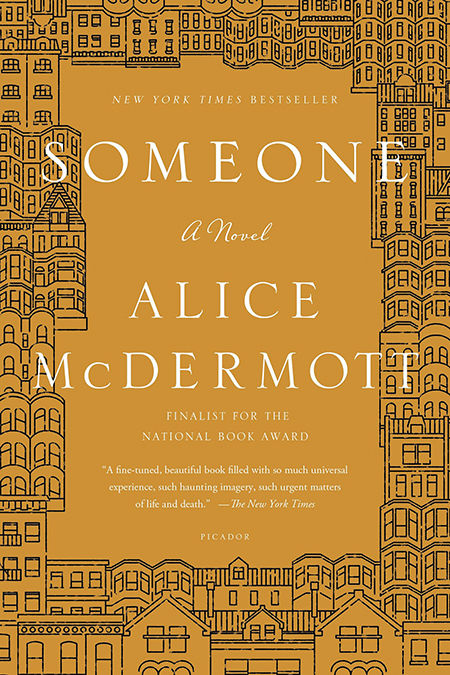We first meet seven-year-old Marie as she is sitting on her front stoop in Brooklyn, awaiting the arrival of her hero — her father; “my heart pinned to my father’s sleeve in those days,” she explains.
Thus opens “Someone,” recently released in paperback, another brilliant piece of literature by Alice McDermott, made all the wiser by its roots in Catholicism.
The neighbors in the novel’s close-knit Irish Catholic neighborhood captivate Marie’s and our attention alike. Bill Corrigan, blinded in WWI, umpires boy’s stick ball. The funeral director and shopkeeper take messages for families without phones. And mothers usher loitering children toward home.
McDermott is a stylistic master. Her prose is clear, accessible and beautiful. The welcome this clarity extends to all readers parallels the values in the Christian neighborhood in which Marie grows up.
Everyone is someone in the eyes of God. The individual integrity of everyone from the blind umpire to big, slow Lucy is accepted.
This acceptance is coupled with another trait of the community, explained by Marie as “the white lace curtain pretensions” under which certain topics are hushed. Her father’s alcoholism is a central force in Marie’s life and the book’s plot. Yet his tremors, escorts home and hospitalizations go undiscussed.
Despite this silence, Marie and her older brother’s life decisions are influenced by their father. Marie, in her adolescence, is attracted to the smell of alcohol on a man’s breath. Her brother is left with the feeling that their mother is his responsibility above all else in life.
This is a story of grief, love and the meaning of life. The narration weaves through the thoughts and reexaminations of Marie in an old age home.
McDermott creates an engaging tale that enraptures us in present action, while presenting the mind of an elderly woman examining her life. The narrative order is driven by the topics and questions that Marie, in reflection, returns to over and over.
Alice McDermott is one of the best writers of our time. There is no wonder why her books regularly top the lists of outstanding Catholic contemporary novels. More than McDermott’s talent (which is mighty), it is the rich tradition of Catholicism that sets her novels apart from those of equal craftsmanship.
Where Ian McEwan’s “The Children Act,” Alice Munroe’s “Family Furnishings” and other works released this season leave hints of emptiness and lack of direction, despite equally powerful and exemplary stylistics, Alice McDermott’s work leaves a more holistic, sated feeling in readers.
Her characters, whether lost, Amadans, fallen away, or devout rub up against a 2,000-year-old tradition, which lends a coherency to the world views her novels explore. As a result, McDermott’s themes are deeper and ultimately more satisfying to read than those of many of her contemporaries.
Alice McDermott will be in Los Angeles Feb. 19-21 for the Catholic Literary Imagination Conference being held on campus at the University of Southern California. The CLIC is free and open to the public. Join Alice McDermott, along with Julia Alvarez, Dana Gioia, Ron Hansen, Kevin Starr, Tobias Wolff and many more leading writers, critics, scholars, editors, and journalists — young and old, Catholic and non-Catholic — who will participate in a dynamic, serious (but never pious) conversation about the relationship between faith and literature in contemporary American culture.
It’s rumored that Alice McDermott will be giving CLIC’s closing plenary address Feb. 21. For more information, go to: www.cli.ifacs.com.

